Intel has expanded its Core series of processors with nine new X-series models, but none of them are likely to be in the iMac Pro, given what Apple has said about the system.
On Monday, Intel detailed a range of 12- to 18-core processors in the X-series processor family. Intel declares that the chip is the ultimate platform for content creators, with up to 20 percent better performance for VR content creation.
The processors released range from the four-core i5-7640x running at 4.0GHz with a boost speed of 4.2Ghz to the 18-core i9-7980XE running at 2.6GHz with a boost speed of 4.2GHz.
However, none of the processors support ECC RAM. All of the new i9 processors use DDR4-2666 RAM, rather than ECC.
When announced during the 2017 WWDC Keynote, the iMac Pro was declared to have 32GB of ECC RAM at its starting price of $4999. As a result, none of these chips will be used in the iMac Pro.
Prices for the new chips range from $242 for the i5-7640X to $1999 for the 18-core i9-7980XE. The entire range is desktop or workstation-oriented.
Signs point to Xeon, not i9
High Sierra code found in June points to Apple's future use of Intel's LGA3647 socket, the server-grade component reserved for the Purley Xeon platform. Purley is the evolution and consolidation of the Haswell-based Xeon E5 and E7 platforms and supports the new high-end Skylake class Xeon silicon.
Intel revealed the first batch of "Purley" Xeon processors that do support ECC RAM in July. Purley effectively allows for up to 28 cores to run on a single LGA3647 motherboard socket, with support for up to 8 sockets to work together in the same computer.
While the iMac Pro chip is still unknown, it is more likely in the Purley family, than the Core i9.
 Mike Wuerthele
Mike Wuerthele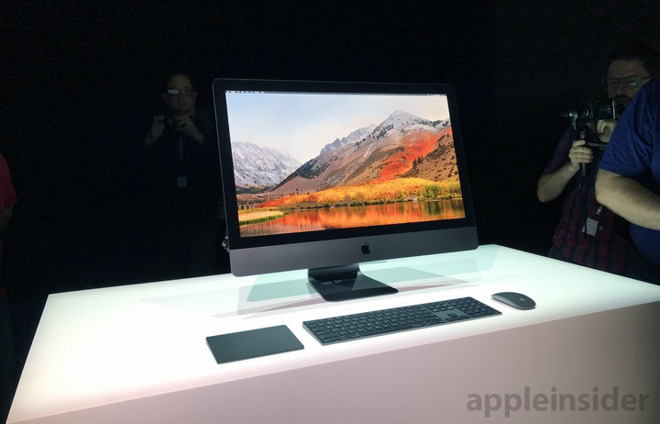
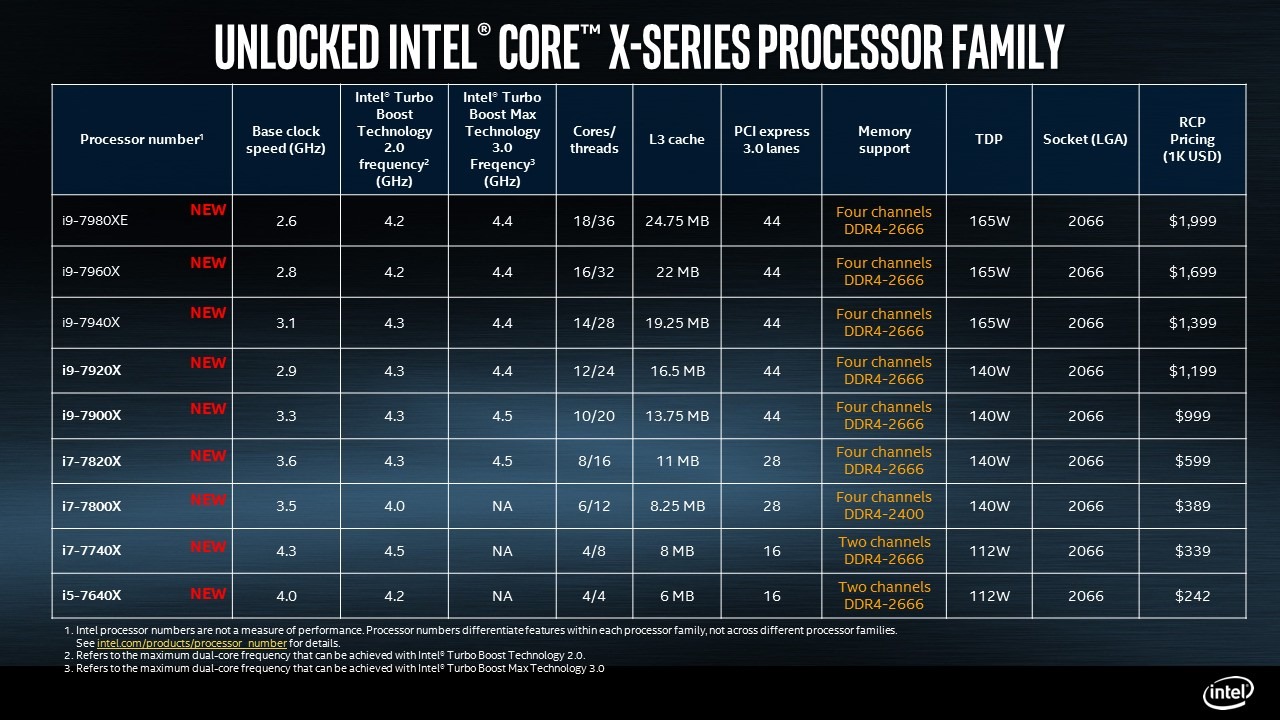
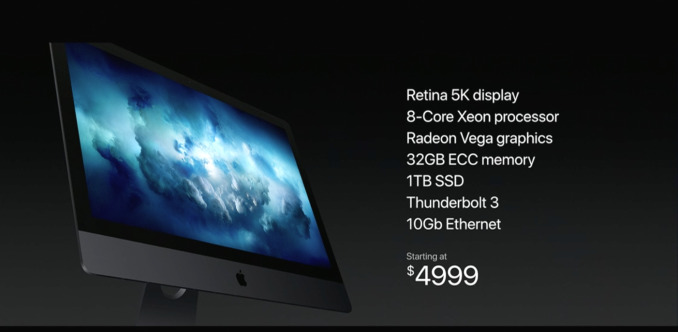

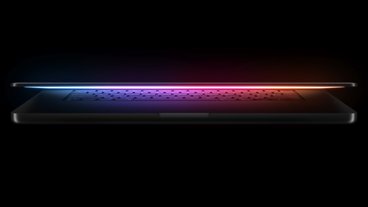

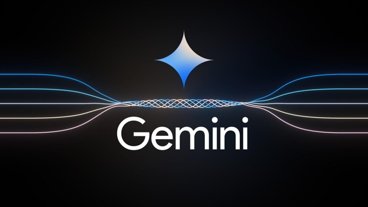
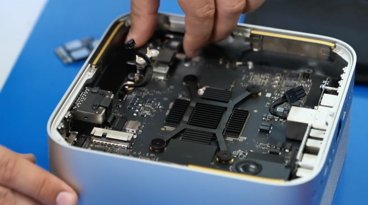



 Charles Martin
Charles Martin


 Christine McKee
Christine McKee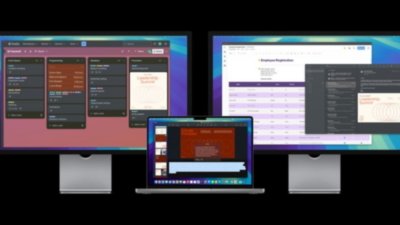


 Oliver Haslam
Oliver Haslam
 William Gallagher
William Gallagher








49 Comments
We'll have to wait until 2018 for all of this goodness. Apple has given us quite enough to keep use busy spending money as is, so I'm in no hurry.
Intel, what about 10nm mobile processors for Macbook Pro ? Oh! forgot you delayed it with 14nm Coffee lake.
What are some important differences between DDR4 and ECC memory?
DDR4 is not error correcting. ECC RAM is, and corrects for single-bit errors from any one of a number of sources. According to Google, more than 8% of its DIMM memory modules are affected by errors per year.